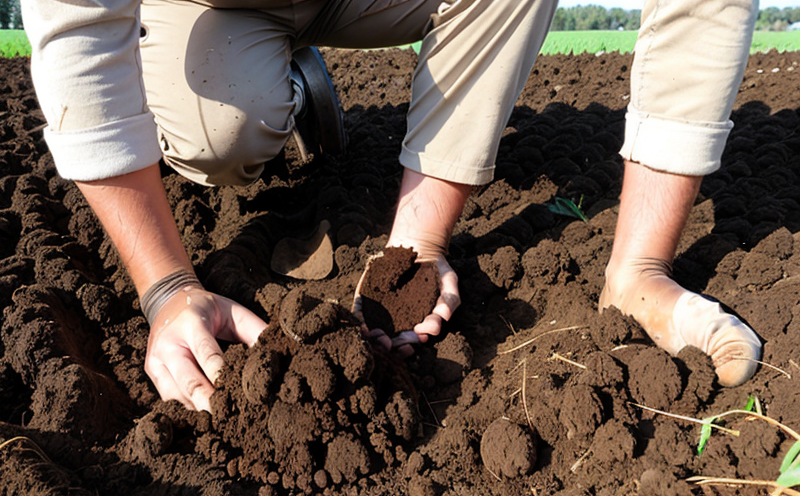Soil Sulfate Content Testing
Sulfur is an essential nutrient that plays a critical role in plant growth and soil health. However, excessive sulfate levels can lead to various issues including phytotoxicity (plant toxicity), sulfur deficiency symptoms in crops, and environmental concerns such as acid rain formation when it combines with nitrogen oxides.
Our Soil Sulfate Content Testing service helps ensure that agricultural operations maintain optimal soil conditions for crop productivity. By accurately measuring sulfate levels, we provide actionable insights to our clients regarding the appropriate management of sulfur in their soils. This is especially important for regions where intensive farming practices may exacerbate issues related to sulfur imbalances.
For forestry applications, understanding sulfate content helps in preventing damage to young tree seedlings and mature trees by avoiding excessive sulfate inputs through fertilizers or irrigation water. Proper management ensures sustainable forest growth while minimizing risks associated with excess sulfur compounds.
The testing process involves collecting representative soil samples from various locations within a field or plantation area. These samples are then prepared according to our standard procedures which include sieving and drying before analysis. Our lab uses advanced analytical techniques such as ion chromatography (IC) that offer high precision and accuracy in quantifying sulfate concentrations.
Our service covers not only the determination of total sulfate content but also includes identifying specific forms like sulfuric acid, sulfites, and sulfates present at different pH levels. This comprehensive approach ensures a thorough assessment of potential risks linked to sulfate toxicity or deficiency.
The importance of this testing cannot be overstated given its implications for both agricultural productivity and environmental sustainability. Inappropriate management practices could lead not only to reduced crop yields but also contribute significantly towards pollution if excess sulfates enter water bodies via runoff.
Why It Matters
The significance of accurate sulfate content testing lies in its direct impact on soil health and agricultural productivity. Excessive sulfate levels can lead to phytotoxic effects, causing stunted growth or even death of plants if concentrations exceed certain thresholds.
- Phytotoxicity: High sulfate levels can interfere with the plant's ability to absorb other essential nutrients like calcium and magnesium.
- Crop Yield Reduction: Excessive sulfates may inhibit root growth, reduce chlorophyll synthesis, and decrease overall photosynthesis efficiency.
- Air Quality Implications: When combined with nitrogen oxides, excess sulfate emissions contribute to acid rain formation, affecting not only vegetation but also aquatic ecosystems.
Inadequate sulfate levels can equally pose problems by causing sulfur deficiencies in plants. Sulfur is crucial for the synthesis of several amino acids and proteins necessary for plant metabolism. Deficiency symptoms include yellowing leaves, stunted growth, and poor seed formation.
Applied Standards
| Standard | Description |
|---|---|
| ISO 17025:2017 | International standard ensuring the competence of testing and calibration laboratories. |
| ASTM D6984-13 | Analytical method for determining sulfate in soils using ion chromatography. |
| EN ISO 15152-1:2017 | European standard providing guidelines for the sampling and preparation of soil samples. |
Customer Impact and Satisfaction
- Improved Soil Management: Clients gain valuable insights into their soil's sulfate content, enabling them to make informed decisions about fertilization practices.
- Avoidance of Environmental Damage: By preventing excess sulfates from entering water systems through runoff or leaching, our clients help preserve local ecosystems.
- Promotion of Sustainable Practices: Our testing supports sustainable agricultural and forestry practices that balance productivity with environmental responsibility.
- Increase in Crop Quality and Yield: Optimal sulfate levels lead to healthier plants with better resistance to diseases, ultimately resulting in higher quality produce and increased yield.





